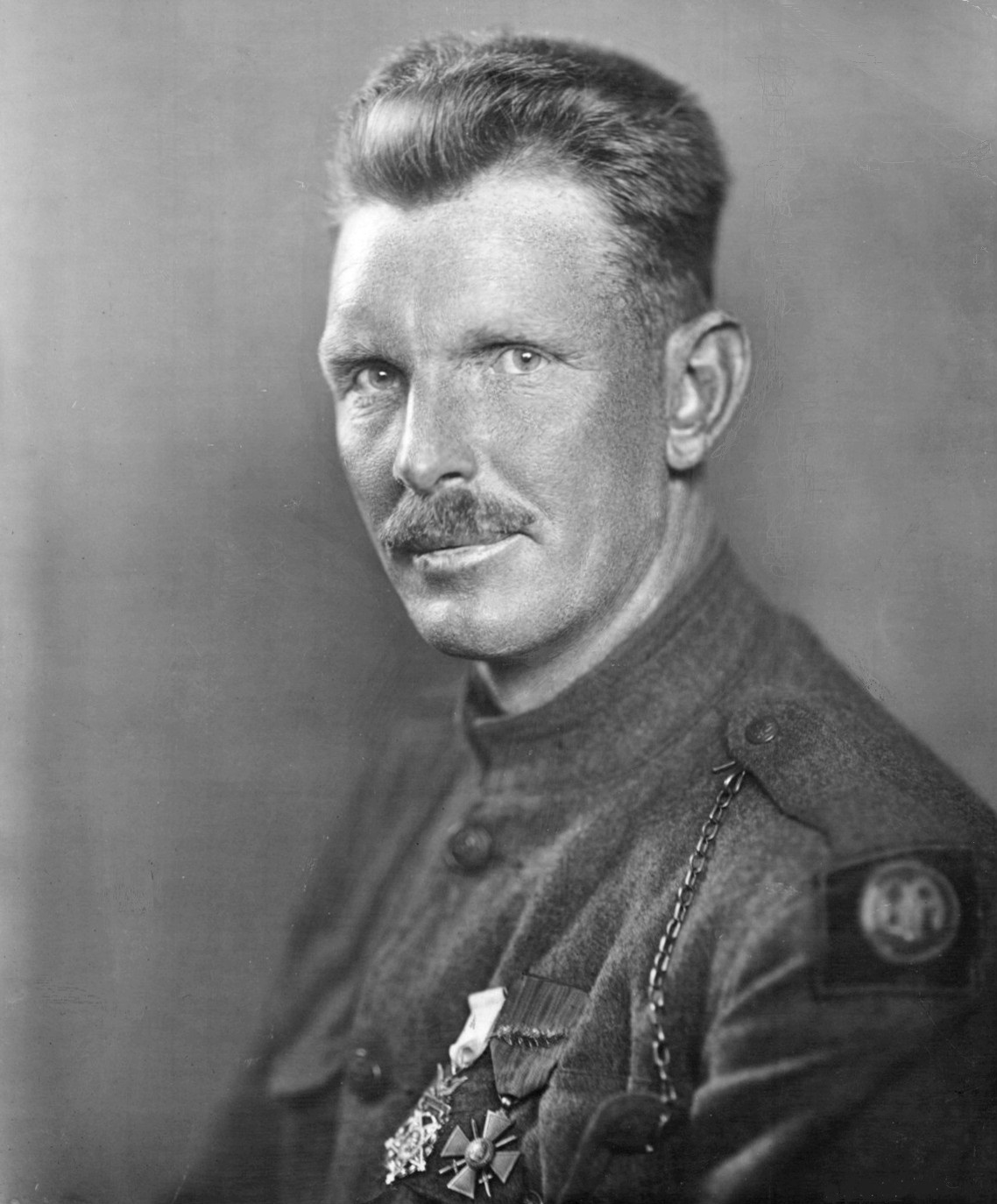THE TENNESSEE STATE HALL OF FAME


The twentieth century, sometimes referred to as the American century, was set up with a show of strength. In 1898, the Spanish-American War demonstrated that America was a new world power. This was essentially a naval war and brought far-flung regions under American influence. Cuba, Guam, Puerto Rico and the Philippines were passed to the control of the U.S.A. as a consequence of the war. The military occupation of Cuba was short lived, just until 1902. The Philippines, however, were somewhat more problematic. Their independence was not confirmed until 1946. This new status as a world power brought the U.S.A. responsibility. It would not be long before other countries looked to the U.S.A. for help in settling international problems, but some interesting domestic developments occurred first.
The Marathon, the first automobile manufactured in the South was made in Jackson, Tennessee from 1907-1914. In 1909, Tennessee imposed prohibition—ten years earlier than the rest of the nation. In that same year, W.C. Handy wrote The Beale Street Blues and shared a new genre of music with the world. A year later, Horace Lurton of Clarksville became a U.S. Supreme Court Justice, and on June 22, the world’s first night flight was made by Charles K. Hamilton at Nashville’s Cumberland Park. In 1911, the trust-busting movement that had originated with the Sherman Antitrust Law of 1890, considered the American Tobacco Co. in Tennessee and broke it up as a monopoly. A big change came in 1913, with the Federal Income Tax. Tennessean Cordell Hull was the author of the law and its revision in 1916. The world drew closer together in 1914, with the opening of the Panama Canal. This shortcut between the Atlantic and Pacific Oceans changed world commerce and strategic operations. It can be compared to the opening of the Suez Canal in 1869.
The year 1914, was also the year that set the world on fire; that was when the Great War, WWI, broke out in Europe. The U.S.A. tried to remain neutral, but ultimately the country was drawn into the fighting in 1917. When the United States decided to conscript soldiers, Tennesseans did not embrace the idea. It was widely believed that the Volunteer State should ask for volunteers. Conscription, they argued, was an unnecessary violation of personal freedom, would upset race relations, and disrupt the economy. In the end, over 61,000 Tennesseans were conscripted and about 19,000 volunteered. This war provided the setting for one of the most celebrated events in American military history.

On October 18, 1918, Corporal Alvin York of Pall Mall, Tennessee killed 20 German soldiers and captured 132 prisoners in the Argonne Forest of France. He was subsequently promoted to sergeant and awarded over forty military decorations, including the Congressional Medal of Honor. In addition to York, five other Tennesseans earned this, the highest military award in the war. Alvin York was among those who had been conscripted. Later in the 1930s, his heroism was celebrated by a popular movie.
In the middle of the war in 1916, and just prior to America’s entry, a Tennessean, Charles Saunders, invented a marketing idea that was destined to change the way Americans, and many other people around the world, shop. He allowed shoppers in his Piggly Wiggly store in Memphis to take items directly off the shelves and put them in a basket—the self-service supermarket was launched. This allowed shoppers to take as much time as they desired and facilitated comparative shopping. By 1923, he had 1,268 stores in the country.
The decade following WWI saw America take on an even greater international role with loans to Germany that facilitated the European recovery. Tennessee, too, experienced bigger movements. Women began to take on a more assertive role. The post-war economy was sluggish, but the first Women’s Bank opened its doors, and the Women’s Suffrage movement became more controversial as it progressed through stages. Traditionally, women had been considered dependents of their fathers and then, once married, dependents of their husbands. After the Civil War, they had often been exalted as “queen of the house.” Once the suffrage movement took off and women began to speak of equality with men, an anti-suffrage attitude manifested itself and renewed the argument that a woman’s place was in the home, and that her influence could best be exerted in society through her husband and sons. Anti-suffragists accused the suffragists of endangering family life and white supremacy. However, the movement was not to be stopped. Tennessee was the thirty-sixth state to ratify the Nineteenth Amendment in 1920, thereby becoming the state that sealed the deal and gave women the right to vote. It was a close call in the General Assembly, and the deciding vote was cast by a twenty-four-year-old East Tennessee Republican Harry Burn who said it was the right thing to do and that, “my mother wanted me to vote for ratification.”
An interesting development in American literature began in Tennessee. This was the Southern Renascence, an evolving movement that began in the 1920s and 1930s and addressed the changed and changing nature of society in the South since the Civil War. Among the early contributors were: Donald Davidson, founding member of The Fugitives, a literary magazine at Vanderbilt University, 1922-1925. John Crowe Ransom, Chills and Fever, 1924, and Two Gentlemen in Bonds, 1927; Caroline Gordon, Penhally, 1931; and Horace McCoy, They Shoot Horses Don’t They?, 1935.
In 1925, the world watched as the Scopes “Monkey Trial” unfolded in Dayton, Tennessee where evolution was on trial. This came about when high-school teacher John T. Scopes was arrested and tried for teaching evolution in violation of a state law that prohibited teaching theories that conflicted with the bible. He was convicted, but that decision was overturned by the Tennessee Supreme Court on a technicality. The anti-evolution bill remained in effect, but it was never enforced.

The Grand Ole Opry became a household word starting in 1927, when the relatively new medium of radio broadcast a music program of country music designed to appeal to working-class and rural men and women. The station was WSM in Nashville. This city became the nucleus of the country music business.
The Great Depression began in 1929, when the New York stock market crashed and reached Tennessee in November 1930, with a run on the banks. The state and the country lived through bitterly hard times until World War II lifted the economy out of its doldrums. There were substantial developments along the way that marked the nation’s struggle for recovery. The New Deal put thousands of men to work throughout the state. They built roads, bridges, public facilities, parks, and housing projects. Relief feeding programs proved to be the salvation of an untold number of people. The New Deal was not without faults. Men were given priority for jobs, as they were judged heads of households. New Deal programs often reinforced the color line. Small farmers and sharecroppers fared poorly when compared to big farmers, but on balance the provisional programs held the state and country together.
There were significant, long-term successes. President Franklin D. Roosevelt created the Tennessee Valley Authority (TVA) during the first Hundred Days of his administration in 1933. He conceived of it as a comprehensive plan involving industrialization, soil conservation, reforestation and the provision of electricity. Perhaps the most visible benefit was that the TVA brought power to rural areas along the Tennessee River in seven states. The Social Security Act of 1935 provided, and continues to provide, basic income for millions of Americans in their sunset years.
The year of the TVA, 1933, was also important to Tennessee for other reasons. Tennessean T.S. Stribling, a member of the Southern Renascence, brought home the Pulitzer Prize for Literature for his novel The Store that year. Elsewhere, Cordell Hull took office as Secretary of State. He served until 1945, and was the principal architect of the United Nations. He was awarded the Nobel Peace Prize in 1945, for his contributions to mankind.
References:
Bergeron, Paul H., Stephen V.Ash and Jeanette Keith. Tennesseans and Their History. Knoxville: The University of Tennessee. 2007.
Foner, Eric and John Garraty, eds. The Reader’s Companion to American History. Boston.: Houghton Miflin Co. 1991
Perkins, George, Barbara Perkins and Phillip Leininger, eds. Benet’s Reader’s Encyclopedia of American Litewrature. New York: Harper Collins. 1991.
Van West, Carroll, Ed.-in-Chief. The Tennessee Encyclopedia of History and Culture. Nashville: Tennessee Historical Society, Rutledge Hill Press. 1998.
Winn, Thomas Howard. “Time-Line—1780-1984 U.S.—Tennessee— Clarksville-Montgomery County.” Clarksville: Austin Peay State University, Working Document. 1984.